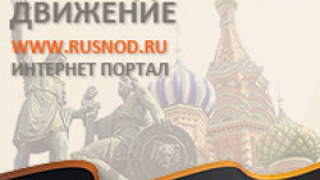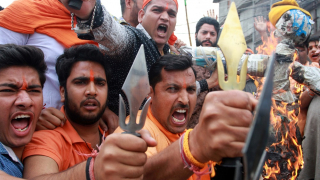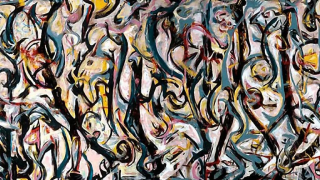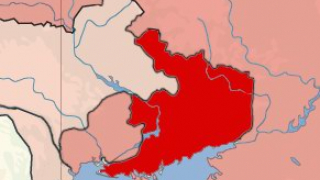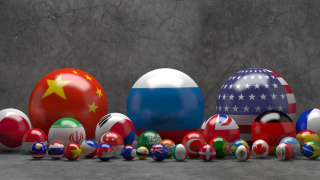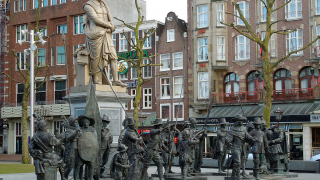Nationalism: criminal fiction and ideological impasse
Probably only few people paid serious attention to the fact that the Fourth Political Theory, which I adhere to, pays the most serious attention to the criticism of nationalism. Most striking is the criticism of liberalism and the rejection of Marxist dogma. But equally necessary and fundamental is the radical rejection of not just nationalism, but even the nation.
A special place in the Fourth Political Theory is occupied by a frontal and uncompromising criticism of racism, which can be regarded as one of the versions of nationalism, or, more broadly, as a general paradigm of the attitude of Western civilization to all other peoples and cultures.
At a time when Russia is conducting a military operation in Ukraine, the purpose of which is denazification, we should dwell on this in more detail.
Plurality of Civilizations and Multipolarity
The Fourth Political Theory is based on the fundamental idea of a plurality of civilizations and cultures, that is, the idea of a multipolar world - as history, the present state of affairs and a project for the future. This means that Western civilization and, in particular, modern Western civilization that has developed in Modern times, is only one of the variants of civilization, and beyond its borders, there have existed, exist and, most importantly, there must and will exist other civilizations based on other civilizations original principles.
These non-Western civilizations are:
· Russian (Orthodox-Eurasian) civilization (we start with it, because we are it);
· Chinese (quite unified and today politically formalized);
· Islamic (multipolar and multi-vector in itself)
· Indian (not yet acting as an independent pole);
· Latin American (in the process of becoming);
· African (potential and represented by the Pan-Africanism project).
In addition, in Western civilization itself, two sectors can be distinguished:
· Anglo-Saxon (USA, England, Australia, Canada) and
· European-continental (primarily Franco-German).
At the same time, Western civilization presents itself as unique and universal, equating its values and attitudes with those of all mankind. This is deep Western racism (ethnocentrism), which was the basis of classical colonialism and remains so - but only a little more veiled - in the projects of globalism.
The Racist Nature of Unipolarity: Western Hegemony and Agents of Influence
At the level of geopolitics and geostrategy, Western racism is expressed in a unipolar model - the West (USA and NATO) control all of humanity based on full-spectrum dominance (military, economic, diplomatic, informational and cultural dominance).
Any country and any person can agree with the West's claim to universalism (that is, unipolarity), or can reject it. The choice of unipolarity or multipolarity is not a given - it is always open. Every Russian, Chinese, Muslim, Hindu, African or Latin American can recognize the hegemony of the West, or can say a resolute "no" to it, swearing to their own civilizational identity. So everything depends on the position we take. If we accept the universality of the West and its strategic and cultural dominance, we become agents of NATO influence. And nothing else. If we do not agree, then we will experience the blow of world hegemony. That is, we are entering into a fight with the West, NATO and its agents of influence, that is, with all those who say “yes” to the West.
Today Russia is conducting a military operation against the West and its hegemony. It was with him that we entered into direct confrontation. This means Russia - as a distinctive civilization and a nuclear power - rejects the West's claim to hegemony and universalism. Moscow hesitated for a long time, but finally decided to say a radical "no".
Quite naturally, the racist globalist West responds to Russia in the same way. He is fiercely waging a proxy war with us, and by proxy, with the help of the neo-Nazi regime he has nurtured in Ukraine.
There is an armed confrontation between the multipolar world and the unipolar one. This is a clash of civilizations. Civilizations in the plural. And not a war of one “only civilization with the barbarians”, as the West propagandizes.
Since the war (not with Ukraine, but with the West) is already underway, therefore, right now is the moment when we must oppose the West with our civilizational structures - theories, ideas, paradigms, teachings, values, principles. And Western values should at least be relativized or discarded altogether. To relativize means to say: "you like it, well, that's fine, but it's yours and only yours, and not universal." In order to discard, everything is clear. But in return, in all cases, it is necessary to approve something of your own, original and complete.
Hegemony in political science
Just as some media and publicorganizations in Russia have for some time now been required to wear the disclaimer “foreign agent”, so it is with political theories. Liberalism, communism, and nationalism of particular interest to us are the main political and ideological versions of Western Modernity. All three classical ideologies (liberalism, communism, nationalism) were formed precisely in the West and correspond to its historical experience and its identity. In the rest of non-Western societies and entire civilizations, these three theories were extended in the course of intellectual colonization. Today they are considered as general and universal, and therefore applicable to any peoples and countries. But in fact, we are talking about the conceptual and theoretical products of only one part of humanity, one civilization - modern Western. In all non-Western societies, an exposition of liberalism (today the dominant and therefore the most dangerous), communism and nationalism must begin with a warning - “Beware! We are dealing with toxic colonial-imperialist content!” That is, the supporters of liberalism, communism and nationalism outside the West are conscious or unconscious "foreign agents". Unless, of course, they subject these theories not only to criticism, but at least to comparison with their own teachings and theories, built on the basis of the beginnings of their civilization. And this happens very rarely and as a rule is immediately suppressed.
Being a liberal, a communist or a nationalist outside the West is like being an agent of influence, a collaborator and a "fifth column".
This is a general conclusion from multipolarity and the recognition of a plurality of civilizations, as well as the fundamental basis of the Fourth Political Theory, based on the rejection of the claim of Western political science and its three main theories - 1. liberalism, 2. communism, 3. nationalism - for universality.
Western political science is a product of capitalism
Moreover, it should be added that we are dealing with the political science of the modern West, which took shape precisely in that era when the West completely broke with its classical and medieval heritage - primarily with Christianity.
Three political theories became the basis of Western political science along with the bourgeois system.
Liberalism initially proclaimed bourgeois individualism and civil society on a cosmopolitan - planetary — scale.
Nationalism is the same individualism and citizenship, but only within the framework of a bourgeois state.
And communism, accepting capitalism as an inevitable phase of human development (a racist and Eurocentric thesis), claimed to overcome the bourgeois order (which was destined to become global first), but retained faith in progress and technical development, continuing - but only in a mass democratic and class key - bourgeois ethics of "liberation" from tradition, religion, family, etc.
Of course, having won in non-Western societies (contrary to Marx himself, who believed that this was impossible), communism changed qualitatively (in Russia, China, etc.), but did not make significant adjustments to the theory itself, remaining part of Eurocentric political science.
Nationalism as anti-tradition
Now more specifically about nationalism. Nationalism is a Western bourgeois-capitalist phenomenon. It appears in Europe as the rejection of the medieval way of life - religion, a single European church, the Empire, the class organization of society. European nationalism is the same artificial and instrumental construction as other versions of Western ideologies. This is not an alternative to capitalist modernity, this is its direct product.
Of course, liberalism more fully corresponds to the capitalist system and was originally conceived as globalism, that is, as the spread of the norms and attitudes of the bourgeois system to all mankind. This, incidentally, was well understood by the Marxists. Nationalism, on the other hand, was an intermediate stage when it was necessary to destroy the pan-European institutions of the Middle Ages - Catholicism, the Empire, the class organization of society, and offer something in return for the temporary preservation of the state, already captured by the bourgeois oligarchy. Not surprisingly, nationalism first appeared in Protestant countries, where, starting from Holland and England, we see all three main signs of emerging capitalism (anti-Church, anti-Empire, anti-hierarchy) -renunciation of Rome, fierce opposition to the Habsburgs and the transfer of initiative in the economy and politics from the aristocracy and the priesthood to the class of urban merchants.
It was the bourgeois anti-traditional - anti-Catholic, anti-estate and anti-imperial - circles of European societies that became the main carriers of nationalism.
Historically, capitalism has developed in phases: first in the form of nationalism, then in the form of globalist liberalism, although liberal theories were formed at an early stage, and Adam Smith's globalism was identical in its contours to the territories of the world colonial British Empire.
With the success of the bourgeois system, capitalism became more and more liberal and less and less national, but in many cases national forms did not disappear anywhere - bourgeois national states have survived to this day. Modern liberal globalists want to abolish them as soon as possible, transferring power to the World Government, but they still exist and, if necessary, are used by the capitalist elites that control them. Nevertheless, it is logical to consider nationalism an early stage of capitalism, and liberalism (globalism) a late one.
Communism in this context is a detour. Communists (at least dogmatic Marxists) are in solidarity with the globalists in rejecting nation-states and consider the triumph of cosmopolitan capitalism on a planetary scale necessary and inevitable. Therefore, in the fight against clearly nationalist regimes, they often find themselves on the side of the liberals.
But at the same time, they are waiting for the moment when the capitalist system, having become global and international, will enter into a crisis, and then, in their opinion, the conditions will be created for the proletarian world revolution. This is where the confrontation between communism and liberalism will make itself felt. Such is the abstract theory of communism, completely refuted by historical practice. In fact, communist regimes did not take shape in a capitalist and international society, but in agrarian countries with an almost medieval way of life. And they turned into something national-Bolshevik, which a significant part of Western Marxists generally refused to consider "socialism" or "communism." So, contrary to pure Marxist theory, some communist regimes (Soviet Russia, China, etc.) began to build socialism in one country, that is, in fact, linked communism with the national context (without giving it, however, a theoretical formulation).
All this created a terrible confusion in terms, since all parties were forced to make ideological stretches and propaganda moves designed to somehow obscure obvious theoretical contradictions.
In any case, nationalism is something purely modern, Western and capitalist.
The nation is an imaginary community
The artificial nature of nationalism is beautifully described by the sociologist Benedict Anderson. He convincingly shows that, unlike a people or an ethnos, a “nation” is a political and artificial concept, created for pragmatic purposes by bourgeois ideologists, when it was necessary to somehow hold society together after it rejected the tradition - religious, class and hierarchical (imperial) . Anderson called his book "An Imaginary Community", which emphasized the illusory nature of the nation, as an arbitrary and fictitious creation of the intelligentsia, ideologically serving the interests of the bourgeoisie.
Benedict Anderson makes a very important statement: nationalism does not follow the nation as its extreme form, but it precedes the nation. Nationalism comes first, and only then the nation itself. Every nation is invented by nationalists. Nationalists begin by inventing ancient roots for a specific historical people that have nothing to do with it. The modern bourgeois state is proclaimed the heir of some great Empire. And then the nationalists impose on the entire population of the state some arbitrary language (most often from among the dialects, it is called "idiom"), a single cultural code and a common system of law on an individual - civil - basis. This collection of individual citizens, who were forced to speak the same language and consider themselves fictitious descendants of great (or fictional) ancestors, is only necessary so that a fragmented and atomized society does not fall apart at all, but at the same time so that neither religious nor religious estates or imperial institutions or rural communities. And in order to unite this heterogeneous mass, an enemy is needed, in the face of which all these human fragments (parts without a whole) would feel solidarity in hatred and unjustified superiority.
At the same time, the word “citizen” itself is important, which comes from the word “city”, that is, “citizen”. Such is the etymology of the word bourgeois, from the word Burg, "city." Nationalism is an urban, urbanistic phenomenon, where people live scattered and nuclear - in contrast to rural communities.
Such is any nationalism. It is first formed into a theory, which is later put into practice. Nationalism molds the political nation.
Hence the feeling of inorganicity and ugliness, which are inextricably linked with all forms of nationalism. It is based on lies, forgery and destruction of the genuine organic life of peoples, cultures and communities.
Functional racism
Racism is the ultimate form of nationalism. In this version, nationalism reaches its extreme stage. Members of some fictitious nation, in which various ethnic and cultural elements will necessarily be present (but this is precisely what nationalism and racism are denied), are proclaimed the “master race”, which (it is not known by whom, because religion is considered a relic) is given the right conquer the lower ones.
Racism was the most important component of European colonialism, primarily Anglo-Saxon, where the right to subjugate and enslave entire continents was based on the “racial superiority of the white man”. In the traditional Empires of antiquity, any conquered peoples had their own legal status and it never occurred to anyone to enslave them or consider them inferior. European racism arose in modern times and was also a bourgeois invention. A race is as much an imaginary phenomenon as a nation. But it emphasizes biological characteristics, as in the case of animals - for example, thoroughbred trotters. The typical appearance of this or that people, of course, matters, but the idea of basing social and economic hierarchy on biological differences is pure absurdity. Perhaps the talents and cultures of different peoples are really different, but it is impossible to build a hierarchy between them without arbitrarily taking one of the peoples as a model and ideal. And this is racism: the identification of one's culture (one's own skin color, language, history, values, etc.) with a universal model.
If for some - primarily for the Anglo-Saxons, who created the first complete racial theories - racism served as a justification for colonial domination and slavery, then in other cases - in Nazi Germany - racism was used - just like nationalism, but only more radical - to rally bourgeois society, falling apart as traditional religious, political and social institutions disappear. Mere nationalism was not enough to unite the disparate German lands of Western and Southern Germany, and Protestant Prussia, which was completely different from them, into a single "imaginary Empire" was not enough. Therefore, ultranationalism was involved - that is, biological racism, borrowed from the British and brought to the most absurd and inhuman theories - the glorification of the Aryan race (which was identified with the Germans), the declaration of other peoples as "non-humans" (including the Indo-European Slavs or Gypsies) and their mass extermination.
And again for the same purely pragmatic goal - to unite what has crumbled into atoms with the help of a false theory.
Why does the Fourth Political Theory reject nationalism?
The Fourth Political Theory rejects racism and any form of nationalism precisely because it is an anti-traditional bourgeois Western and modernist construct. And operating with the concept and theory of nationalism to explain the political and social processes of non-Western and especially in traditional societies is an act of the same universalist - essentially colonial - strategy. This is where racism and the claim that the West and its political science have the last word in explaining all socio-political processes in any peoples and societies lies. Once we agree to use the three theories (liberalism, communism and nationalism), we are already under the direct ideological control of Western hegemony.
The Fourth Political Theory strongly disagrees with the basic premises of nationalism -
with the inevitability of the dismemberment of an organic (whole) society into atoms, that is, with the Western interpretation of "modernity";
with capitalism as a necessary stage in the development of mankind,
with linear and copied from Western history social progress, which consists in more and more individualism, comfort, technical development, fictitious dispersion of power on the atomized masses and a real increase in control from the hidden oligarchic clans and their monopolies.
· with citizenship in its European modernist interpretation,
· with mandatory secularity (essentially anti-religious),
· with the abolition of estates and
· with the destruction of rural communities in favor of urbanized "lonely crowds" - both bourgeois and proletarian.
And since these phenomena belong to the history of the West, the Fourth Political Theory considers them a local, regional case. Other civilizations do not necessarily have to go through this stage - Modernity, capitalism, secularism, industrialization and urbanization - may or may not go through. And neither capitalism nor its nationalistic or racist phases represent any universal law of development.
It is indicative that the Russian Slavophiles and their followers both in the right and in the left spectrum of Russian political life of the 19th and early 20th centuries thought in the same way. The Slavophiles rejected the universality of the West and especially the modern West. The same line was supported, on the one hand, by conservative Orthodox-monarchist circles, and, on the other hand, by Russian populists. The Russian Eurasians rejected even more clearly and radically the claims of the West to universality.
Structure of Ukrainian Nazism
These theoretical remarks make it possible to better understand the situation in which modern Russia faced the phenomenon of nationalism and even Nazism in the case of post-Soviet Ukraine, and especially after the Maidan and during the special military operation, where Ukrainian nationalism (in its extreme forms) found itself in the role of the main political ideological enemy of Russia.
Here we see all the classic features of nationalism:
· appeal to fictitious ancestors (up to idiotic inventions about "ancient Ukrainians"),
· the image of the enemy (primarily in the face of the Russians and Russia, that is, functionally the Empire),
· suggestion of alleged superiority (over the same Russians),
· the imposition of one - artificially created language just for purely political purposes (an idiom like language),
· bourgeois-oligarchic system,
· rapid urbanization of the rural population.
And all these ideological tools are aimed at one goal - to create a nation that does not exist and which does not have and did not have any historical prerequisites for the emergence. Nationalism, and especially its extreme racist forms, testify to the fact that the bourgeois nation does not yet exist. But there is no longer a people, a traditional society, or we are dealing with different peoples and identities that accidentally found themselves within the boundaries of the same ephemeral statehood. In such a situation of desperate alienation, the hasty creation of a “square” required extraordinary measures - it was they who brought modern Ukrainian Nazism to life.
Here a natural question arises: how did the West, which is in a completely different phase, when nation-states are almost abolished, being replaced by global institutions, and liberalism seeks to destroy even the remnants of nationalism, allowed such Ukrainian aphasia? There are two answers to this:
· The West turned a blind eye to Ukrainian Nazism because of its pronounced Russophobic orientation; Russia has the potential to become an independent pole that would limit the hegemony of the West, while Ukraine does not pose any serious threat.
· Ukrainian nationalism was perceived by the West as an inevitable growing pain, a phase that Western societies have long since passed and (as they think) have overcome; Ukraine, having entered the era of capitalism and oligarchy, is forced to rely on nationalism in order to build a state as quickly as possible under rather difficult conditions, given the lack of any constructive experience and potential of Russia as a strong civilizational pole of gravity, alternative to the West.
As a result, in Ukraine, the West supported everything against which it fought desperately at home. What this policy led to is known: another attempt to build a Ukrainian state failed again - first Crimea and Donbass, then a special military operation. And no Nazism helped, although its consequences this time were monstrous in scale.
The ideology of the new Russia
Last thing. It is important to understand that Russia, which claims that it is fighting Nazism in Ukraine and insisting on denazification, is, in fact, acting from the position of the Fourth Political Theory. It is obvious that Moscow does not rely on liberal globalism, with which, on the contrary, it has entered into a deadly confrontation. The liberal West and, more broadly, global capitalism under the rule of the world oligarchy is the main enemy of Russia as a pole, civilization, and culture. The struggle for multipolarity cannot be based on liberalism, that is, on the ideology of the enemy.
Modern Russia has nothing in common - except for the relatively recent past - with communist ideology. Communism collapsed precisely because it lost its inner vitality. The Russian and Eurasian factor, tradition, religion and communal spirit were not included in the Marxist dogmatics, that is, the de facto existing National Bolshevism was not comprehended and accepted. This gave rise to contradictions between what the USSR was and what its party elite thought dogmatically.
But the modern political regime in Russia cannot be called nationalistic either – the way is Russian, not Ukrainian. And this would be a contradiction, since various ethnic groups and cultures participate in Russia-Eurasia, easily integrated into the Empire, but opposed to direct artificial Russification, turning into a nation.
That is, none of the three Western political ideologies exists in modern Russia and cannot exist. However, today it has no ideology at all.
And yet, the struggle today is with nationalism as an ideology - and quite specific. But it is impossible to fight ideology without ideology. Because in this case, no one will be able to understand or explain - with what exactly, why and on what basis this struggle is taking place.
There is only one way out: to reject the West and its civilization as something universal, and return to our own roots, to our history, to our fundamental worldview, to our Tradition, of which all Eastern Slavs (and Great Russians, and Ukrainians, and Belarusians) were a part. There is no better political science system than the Fourth Political Theory (as well as its versions - Slavophilism, Eurasianism, traditionalism, conservatism, etc.). Only it is capable of substantiating our struggle against Ukrainian Nazism and liberal globalism, and everything else is not. An ideological vacuum in such conditions can lead to fatal consequences.



